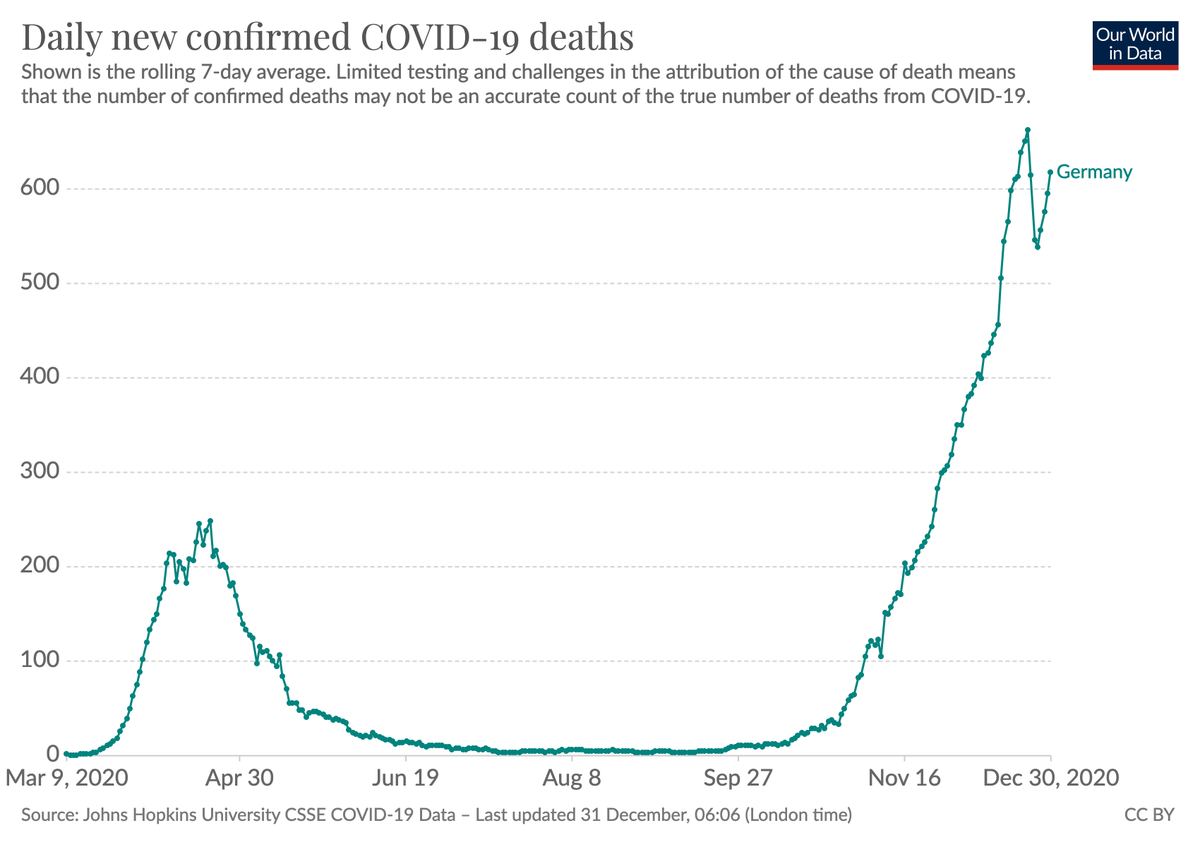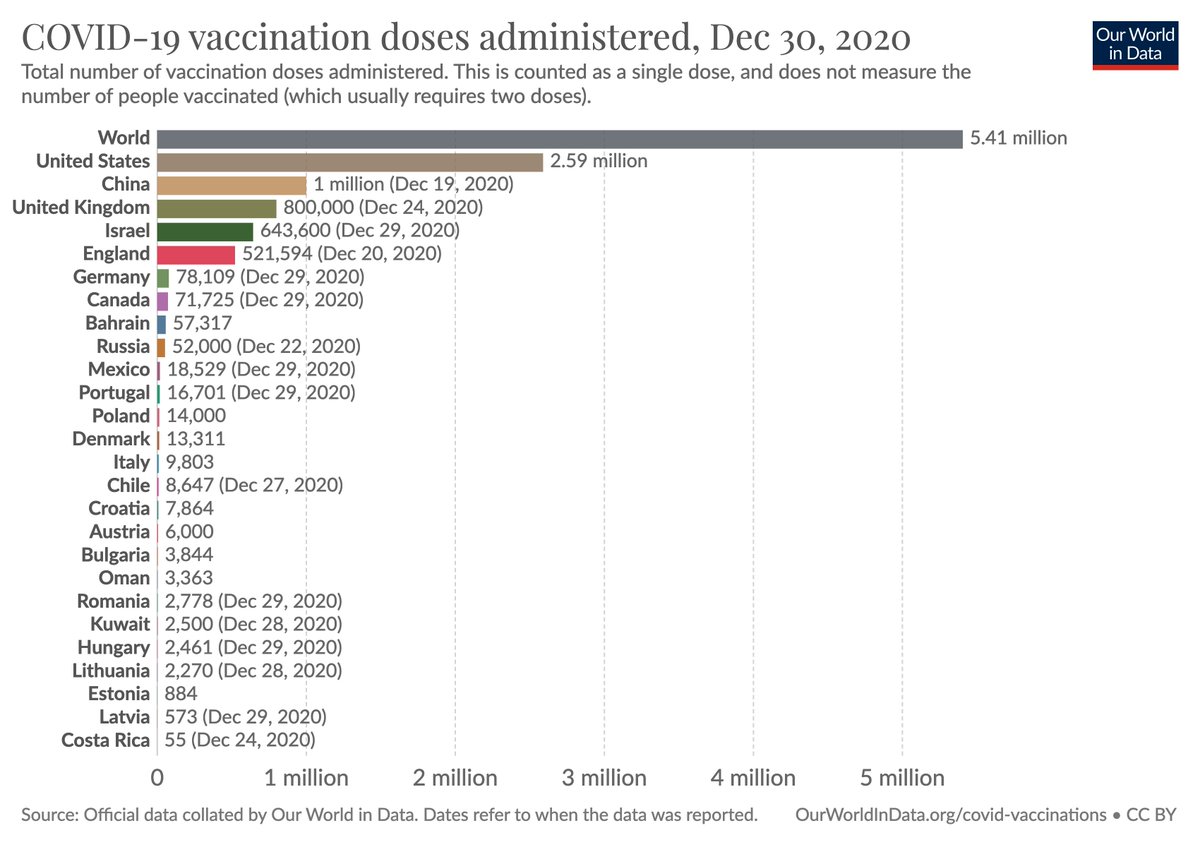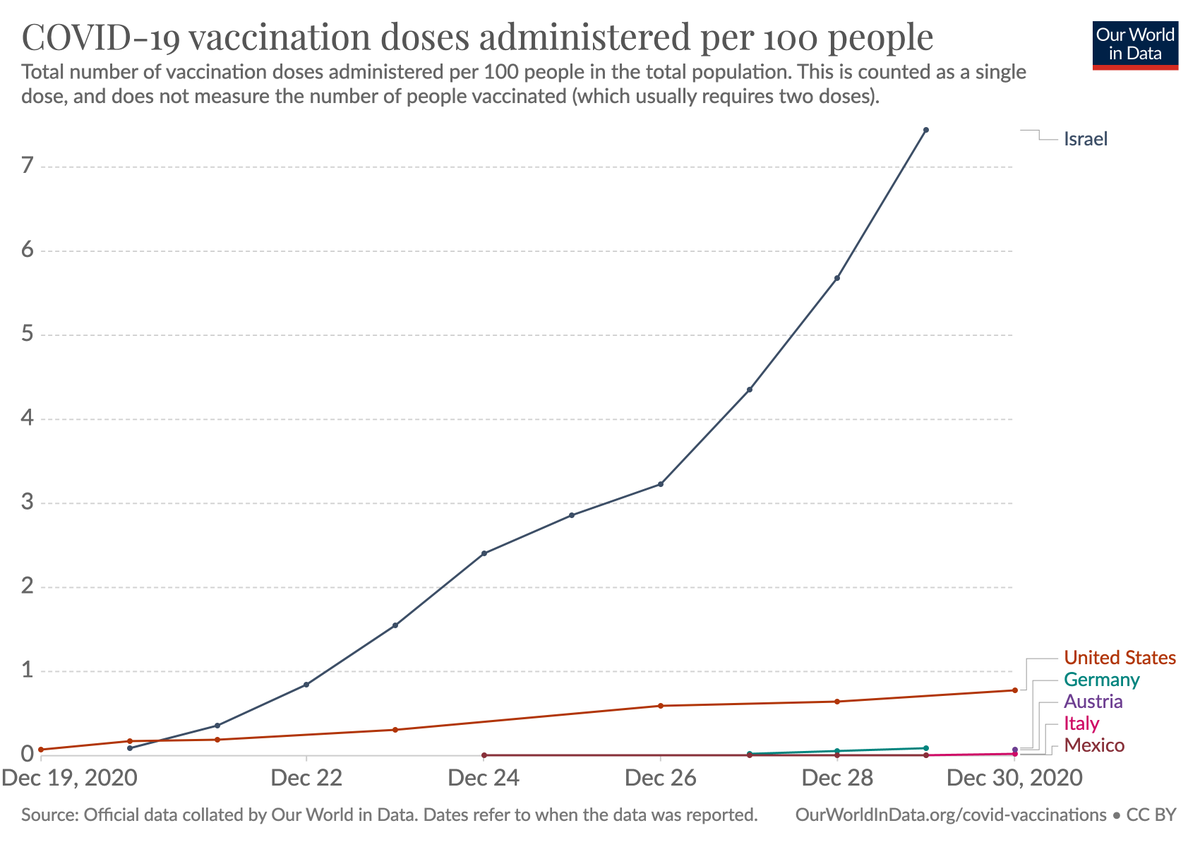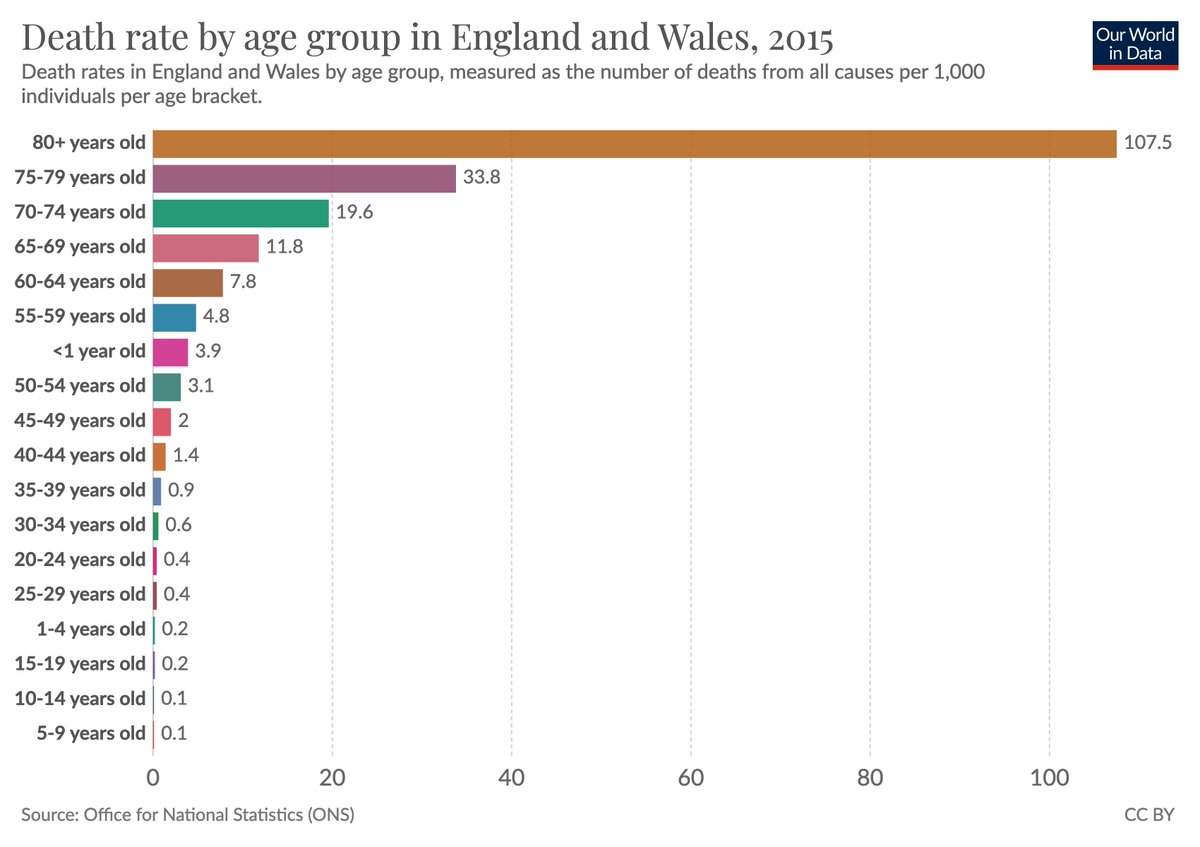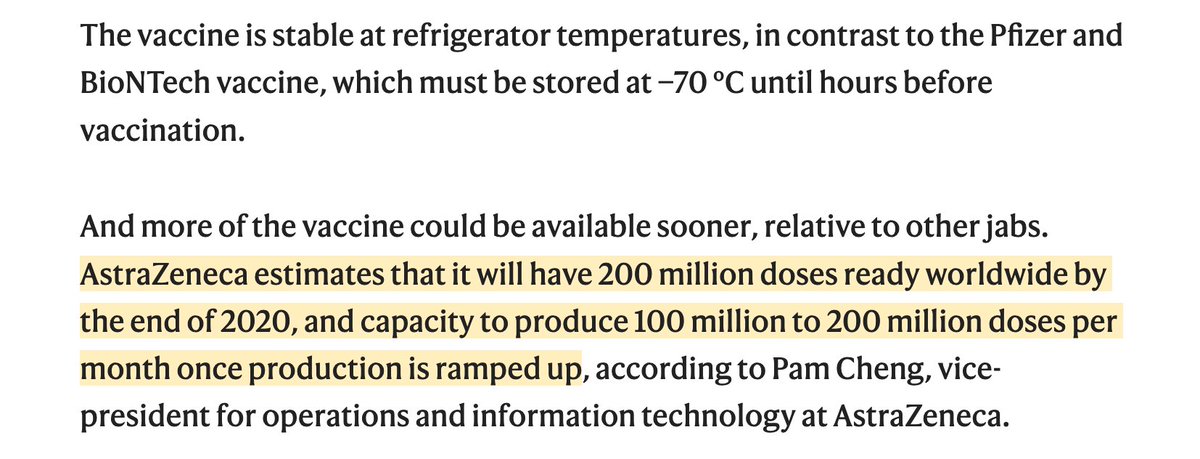
It was wrong to believe that 'saving the economy' was an alternative to 'saving people's lives’.
If anything it is the other way around and the two goals go together so that countries that kept the health impact of the pandemic lower suffered smaller economic consequences.
If anything it is the other way around and the two goals go together so that countries that kept the health impact of the pandemic lower suffered smaller economic consequences.
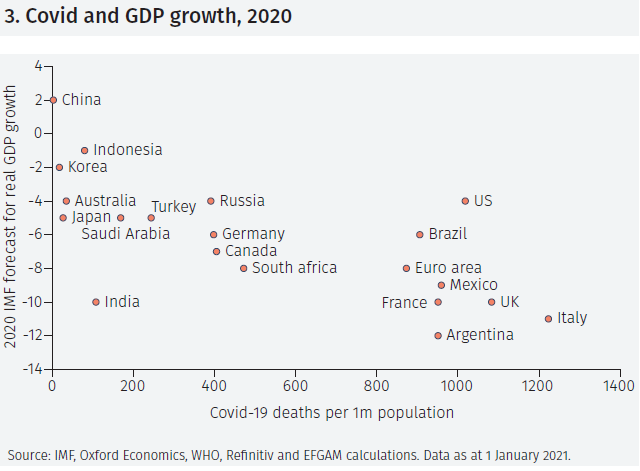
This isn’t a new insight, it’s just more up to date data.
It was obvious early on in the pandemic and has been said by many economists for months.
Here is my colleague @JoeHasell’s post from last summer on the same point: ourworldindata.org/covid-health-e…
It was obvious early on in the pandemic and has been said by many economists for months.
Here is my colleague @JoeHasell’s post from last summer on the same point: ourworldindata.org/covid-health-e…
Or here is me last July saying the same.
It was my expectation then, now we have the data.
It was my expectation then, now we have the data.
https://twitter.com/MaxCRoser/status/1278695571289767936
If you are interested in an academic paper (rather than a tweet) into the question whether there is a trade off or not:
1 – blogs.lse.ac.uk/europpblog/202…
2 – rs-delve.github.io/reports/2020/0…
3 – inet.econ.cam.ac.uk/research-paper…
4 – the contrary position to mine: thetimes.co.uk/article/to-say…
1 – blogs.lse.ac.uk/europpblog/202…
2 – rs-delve.github.io/reports/2020/0…
3 – inet.econ.cam.ac.uk/research-paper…
4 – the contrary position to mine: thetimes.co.uk/article/to-say…
• • •
Missing some Tweet in this thread? You can try to
force a refresh




